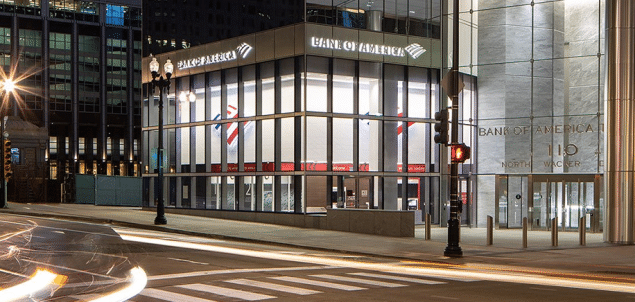Home » Bizarre Lawsuits • Spotlight • US business news » Why a man sued Bank of America for more money than exists in the world
Why a man sued Bank of America for more money than exists in the world
https://www.whatjobs.com/news/what-news-topical/the-man-who-sued-bank-of-america-for-more-money-than-there-is-in-the-world-and-got-nothing

By Hugh Fort in Bizarre Lawsuits, posted February 19, 2024

It's important to think big in life.
The likes of Elon Musk, Jeff Bezos, and Bill Gates would not have risen to where they are now without reaching for the stars.
And if you've got a grievance, it's often admirable to pursue that for all it's worth.
READ MORE: THE MAN WHO SUED STARBUCKS OVER THE AMOUNT OF ICE IN ITS DRINKS
No one can accuse Dalton Chiscolm of not thinking big.
Frustrated by what he perceived as poor customer service by the Bank of America, Chiscolm sued the bank in 2009.
He believed some of his checks weren't deposited correctly.
Dalton Chiscolm sued for $1,784 billion trillion
In normal circumstances, most people would probably call the Customers Services helpline if they had a complaint or an issue.
But in this case, Chiscolm decided to go big.
He decided to sue the company, and decided the amount of money he wanted was $1,784 billion trillion.
That's right $1,784, billion trillion.
Not only was this more money than the bank had, but it was also more money than existed in the world.
Not satisfied with this paltry amount, court papers showed Chiscolm felt he needed an additional $200,164,000.
U.S. District Judge Denny Chin oversaw the case.
The judge knew a thing or two about financial cases, having overseen the case of Bernie Madhoff, who was jailed for 150 years for overseeing an enormous Ponzi scam.
Having presided over what was called the biggest fraud case in American history, the judge was not having any of it.
Need Career Advice? Get employment skills advice at all levels of your career
He called the suit "incomprehensible" and was quoted by Reuters as saying: "He seems to be complaining that he placed a series of calls to the bank in New York and received inconsistent information from a 'Spanish womn.'
"He apparently alleges that checks have been rejected because of incomplete routing numbers."
The judge gave Chiscolm until October of that year to provide more evidence for his outlandish claim.
Happily for the global economy, no laws were found to be broken, and the case was thrown out.
Follow us on YouTube, Twitter, LinkedIn, and Facebook













